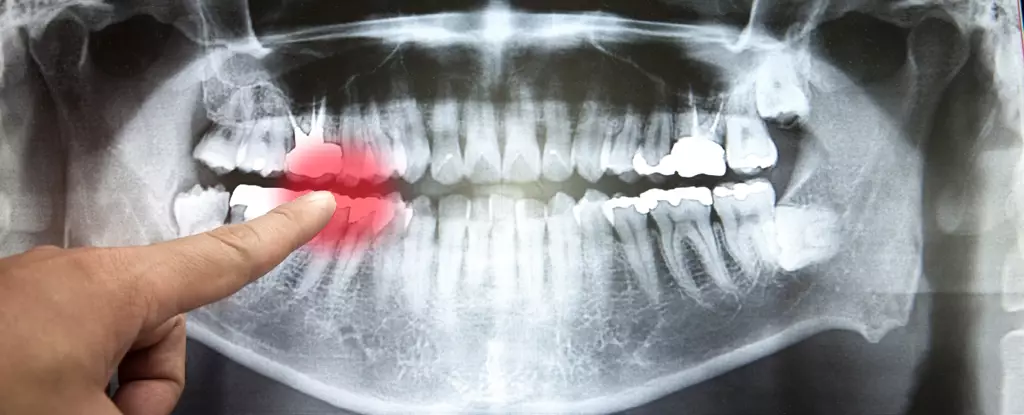Our smiles are an important part of our overall well-being, but just like our bodies, our teeth undergo age-related changes. As we age, it becomes crucial to understand what happens to our teeth and how we can ensure that our smiles last for a lifetime. In this article, we will explore the various changes that occur in our teeth as we age and discuss practical tips to maintain optimal dental health.
Teeth are composed of different layers, each with a specific function. The tooth crown is covered by a protective enamel coat, which gives our teeth their opalescent appearance. Underneath the enamel lies the dentine, a softer, brown layer that constitutes most of the tooth crown and root. Dentine is made up of collagen, mineral, water, and proteins, providing flexibility and strength to our teeth. Inside the tooth, there is a centrally located pulp, containing blood vessels and nerves that connect with the rest of our body.
As we age, our teeth undergo a series of changes. The outer layer of enamel gradually thins, revealing the relatively opaque dentine beneath it. This darkening of dentine occurs due to the stiffening and shrinking of the collagen weave and the filling of the tubules with mineral. Additionally, age-related crack lines and micro-gaps in the enamel can accumulate food and drink particles, leading to discoloration and staining.
To ensure the longevity of our teeth and brighten our smiles, there are several essential steps we can take:
1. Avoid Using Teeth as Tools
Using our teeth as tools, such as to hold objects or open packaging, can exert excessive force and lead to cracking or breaking. It is best to use appropriate tools for these tasks to prevent damage to our teeth.
2. Address Teeth Grinding or Clenching
Excessive grinding or clenching of teeth, especially during sleep, can accelerate tooth wear and introduce the risk of fractures. Wearing a night guard can help protect our teeth from these forces and reduce the negative impact on our dental health.
3. Seek Proper Dental Treatment
If you have large fillings or root canal-treated teeth, it is important to consult with your dentist about suitable filling materials or crowns that can safeguard your teeth from further damage and potential fractures.
4. Distribute Chewing Forces Evenly
In the absence of molars or premolars, it is essential to distribute chewing forces evenly to prevent overloading the remaining teeth. Replacing missing teeth with bridges, implants, or well-fitted dentures can help support your bite and maintain proper oral function.
5. Optimize Oral Hygiene
Choosing the right tools for oral hygiene is crucial. Opt for soft-bristled toothbrushes and non-abrasive toothpaste to minimize enamel and dentine loss. Be cautious of certain whitening toothpastes, as they can be abrasive and impact the tooth surfaces negatively. If you are uncertain, using toothpaste labeled as “sensitive” is a safe choice.
6. Control Acid Exposure
Reducing your exposure to acidic foods and beverages, such as lemons or apple cider vinegar, can help maintain enamel integrity and prevent erosion. Acid attacks on teeth can compromise their structure and lead to decay. Additionally, managing conditions like reflux or vomiting can also play a significant role in preventing enamel erosion.
7. Maintain Adequate Saliva Flow
Saliva plays a crucial role in protecting our teeth against acid attacks, as it flushes our teeth and has antibacterial properties. However, with age, saliva production and quality decrease. Certain medications can further contribute to reduced salivary flow. It is important to consult with your doctor to explore options for improving saliva flow or managing conditions that affect saliva production.
Taking steps to treat gum disease (periodontitis) is not only important for maintaining oral health but also for preventing aesthetic concerns. By addressing gum disease, we can minimize gum shrinkage or recession, which can expose the relatively darker tooth roots and make them more susceptible to decay.
The aging process affects various aspects of our health, including our dental well-being. Cellular senescence, which is the aging of cells, can significantly impact our ability to withstand physical, chemical, or biological damage. Lifestyle factors such as smoking, uncontrolled diabetes, and chronic infections like gum disease can exacerbate cellular senescence, leading to an increased risk of new cancer formation and the onset of chronic illnesses.
Keep up with Oral Hygiene despite Challenges
As we age, cognitive decline, decreased hand dexterity, and deteriorating eyesight can impede our ability to clean our teeth and gums effectively. However, it is essential not to neglect oral hygiene. Dental care professionals can provide assistance in cleaning our teeth thoroughly and recommend products and tools best suited to our individual situations and abilities.
Understanding the changes that occur in our teeth as we age can help us take appropriate measures to maintain a healthy smile. By implementing these practical tips and staying proactive in our dental care, we can ensure that our teeth remain strong, vibrant, and functional well into our golden years. Remember, maintaining optimal dental health is not just about having a beautiful smile; it contributes to our overall well-being and allows us to live long, healthy, and happy lives.



Leave a Reply